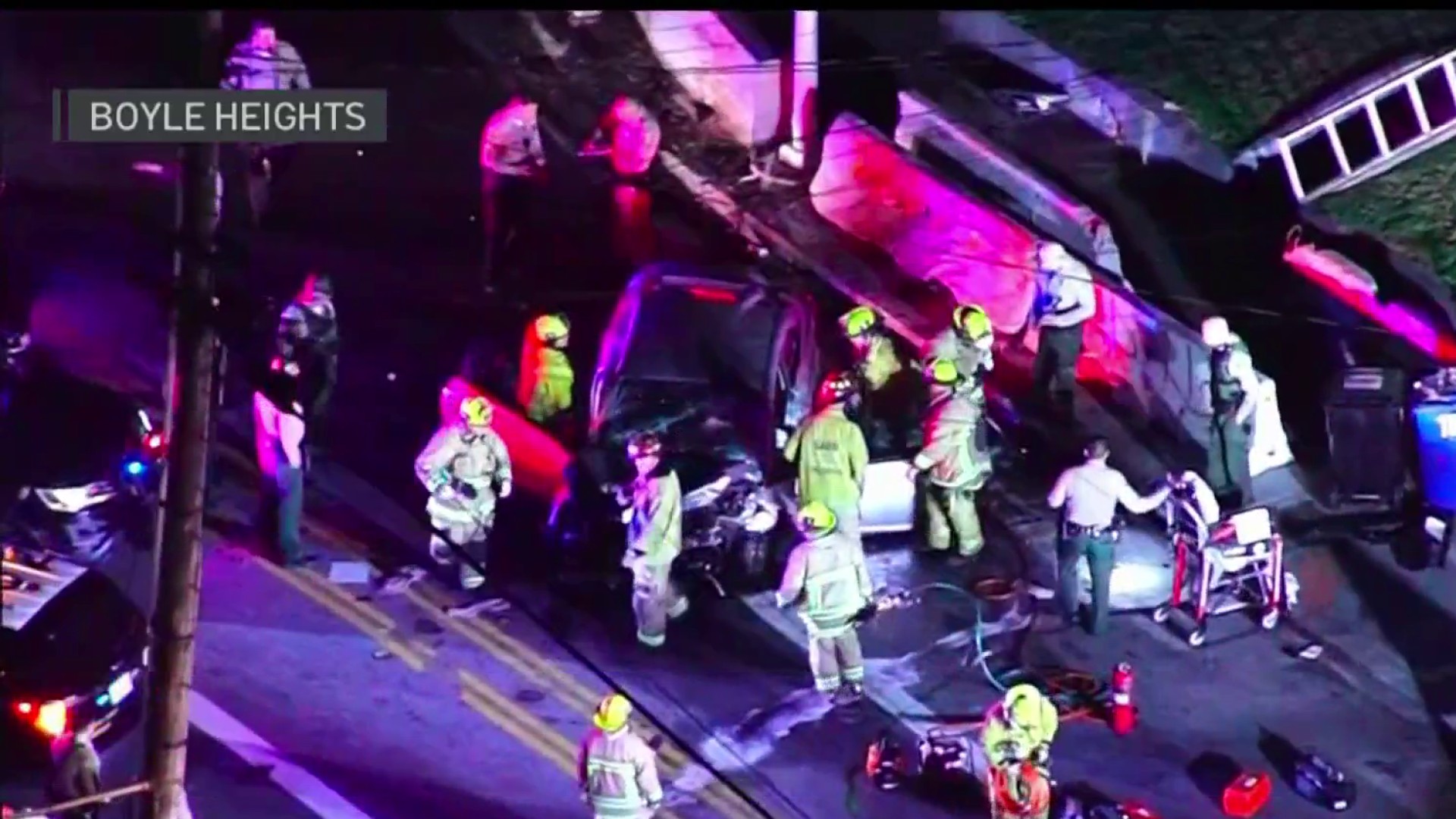What to Know
- Los Angeles' first "A Bridge Home" temporary bridge housing site will serve 45 people
- The El Pueblo project provides 45 beds, hygiene and laundry facilities, a pet area and community space and garden
- Mental health and other services will be available
The first temporary emergency homeless shelter in the city of Los Angeles opened its doors Wednesday near the historic El Pueblo de Los Angeles Monument.
Los Angeles' first "A Bridge Home" temporary bridge housing site will serve 45 people, men and women who once stayed on the streets near the area. They have been preselected and spend their first night at the site on Sept. 10.
The El Pueblo project provides 45 beds, hygiene and laundry facilities, a pet area and community space and garden. Trailers have been installed on a city-owned parking lot at Arcadia and Alameda streets, near the 101 Freeway in downtown Los Angeles, and would operate for up to three years.
Mental health and other services will be available at the location, and the city says the hope is that a person will stay between three to six months, receiving assistance to transition into a permanent solution. The Los Angeles Homeless Services Authority (LAHSA), a city-county agency, has contracted with the People Concern, a non profit organization, which will operate the site and provide services.
The El Pueblo site cost $2.4 million to develop. One million dollars from Measure H, a countywide tax that provides services to homeless, will be used to run the site each year. In 2016, city voters also passed Measure HHH which will invest $1.2 billion to build permanent supportive housing over 10 years.
El Pueblo and other sites in development for similar emergency shelters are expected to provide 1,125 beds. LAHSA says more than 31,000 people are experiencing homelessness in the city, nearly 23,000 are living without shelter.
News
Top news of the day
The development of temporary housing comes after Mayor Eric Garcetti declared a "shelter emergency" in the city in April and follows a new state law that allows cities to expedite construction of new shelter housing for the homeless on publicly owned property.
The mayor's plan proposes creating temporary shelters in each of the city's 15 districts. Council members in each district have submitted locations in their districts as possible sites to build shelters via Council motions.
The NBC 4 I-Team was one of the first to receive the 12 sites under development or in the planning stages:
7621 Canoga Avenue
Location: Los Angeles, CA 91304, Council District 3
About: A privately owned former mental health facility (LA County looking to acquire)
Capacity: 75 beds
5975 St. Andrews Place
Location: Los Angeles, CA 90047, Council District 8
About: In a city parking lot
Capacity: 100 beds
2817 S. Hope Street
Location: Los Angeles, CA 90007, Council District 9
About: Parking lot for Department of Public Social Services
Capacity:100 beds
625 LaFayette Park Place
Location: Los Angeles, CA 90057, Council District 10
About: Recreation and parks facility
Capacity: 70 beds
100 Sunset Avenue
Location: Los Angeles, CA 90291, Council District 11
About: Metro transit yard
Capacity: 100 beds
310 N. Main Street
Location: Los Angeles, CA 90012, Council District 14
About: Former Children’s Museum
Capacity: 100 beds
2316 E. Imperial Hwy
Location: Los Angeles, CA 90059, Council District 15
About: Parking lot owned by HACLA
Capacity: 100 beds
1426 Paloma Street
Location: Los Angeles, CA 90021, Council District 14
About: Privately owned and must still be acquired, part of the Skid Row plan
Capacity: 119 beds
1819 Western Avenue
Location: Los Angeles, CA 90006, Council District 10
About: Parking lot, LA City Council President Herb Wesson's office
Capacity: 15-20 beds
VA West LA Campus
Location: Los Angeles, CA, Council District 11
About: Owned by Veterans Affairs
Capacity: 100 beds
YWCA/1215 Lodi Pl
Location: Los Angeles, CA 90039, Council District 13
About: Women and transgendered women exclusively
Capacity: 64 beds by Fall (more later next year)
1533 Schrader Blvd
Note: Council motion vote scheduled for Wednesday, Sept. 5
Location: Los Angeles, CA 90028, Council District 13
About: City parking lot
Capacity: 70 beds
The state of California's Homeless Emergency Aid Program (HEAP) has allocated more than $85 million in one-time funding to provide immediate assistance to people experiencing homelessness and will be used in part to develop and run emergency shelters. This money cannot be used for enforcement programs or sanitation cleanup costs, according to a report by the City Administrative Office.
Deputy City Manager Matt Szabo explains Special Enforcement and Cleaning zones will be created around shelter sites 30 days after a shelter opens. Szabo says increased sanitation resources will be provided in these areas for increased cleanup efforts, five times a week. Signs will be posted in the areas alerting neighbors of enhanced cleaning and trash removal in compliance with L.A.M.C. 56.11.3 (i) and other relevant laws.
Enforcement will allow the removal of tents and other items blocking sidewalks, exits/entrances, driveways or loading docks; no tents shall be erected between 6 a.m. to 9 p.m. The city and its partners will perform outreach in these areas prior to the cleanups. The city says people on the streets will be given information about other programs, although details about what people with no permanent shelter would be told to do with tents and other belongings that may not have immediate storage was not provided.
Cities cannot prosecute the homeless for sleeping outside on public property if they have no access to shelter because it is unconstitutional, according to a federal appeals court ruling on Tuesday. The U.S. 9th Circuit Court of Appeals overturned a lower court ruling in favor of the city of Boise, Idaho in a case where two homeless people challenged local ordinances barring them from staying overnight on public property. The ruling could affect homeless populations in other states like California.



